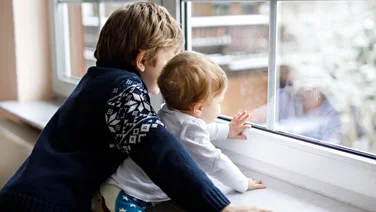We receive a small fee from trusted installers when you request a quote through our site. This helps us keep our content independent, well-researched and up to date – Learn more
- Solar panels are the most recognized low-carbon technology solution
- The extra cost of solar panels to housebuilders can be as little as £2,000
- The future homes standard will ensure all new homes will be low-carbon

Mounting pressure from housebuilders in England has reportedly caused the government to consider making solar panels optional in new homes in a move that some fear could weaken the UK’s efforts to roll out low-carbon technology (LCT).
The future homes standard, a set of long-delayed regulations for newbuilds, will only encourage, not require, newbuilds to have solar panels on their roofs, potentially a massive blow to the planned roll out across the UK, according to reports.
Following the general election, Ed Miliband, Secretary of State for Energy Security and Net Zero, promised a “rooftop revolution” in solar power.
It had been hoped that the upcoming regulations would make solar panel installations compulsory on newbuilds.
David Cowdrey, chief executive of the MCS Foundation, criticised the “apparent failure” to require solar panels on all newbuilds, describing it as “extremely disappointing” and an “enormous missed opportunity”.
“Installing solar panels on all newbuilds would not only reduce energy bills for homeowners, it would also massively contribute to net zero, with the potential to add as much as 4GW of clean, cheap electricity to the grid,” Cowdrey said.
“Allowing loopholes with vague ‘encouragements’ to developers simply is not enough to meet the demands of net zero and make the most of the opportunity to get solar on roofs.”
A spokesperson for the Ministry for Housing, Communities and Local Government was quoted describing solar panels as a “vital technology” to help the UK achieve net zero but insisted they not not be “the best option for all new homes”.
“It is also crucial we set standards for new homes in a way that allows for future innovation and flexibility in technology and design, which is why the building regulations do not mandate one particular option.”
A consultation on the future homes standard was conducted under the previous Conservative government, where housebuilders raised concerns about solar panels. It was closed in March and Labour has not reopened the consultation.
Housebuilders stated that not all house types of roofs are suitable for solar panels, such as those built in the shade or not oriented to face the sun, and that there are other ways to achieve low-carbon living, such as using heat pumps.
Steve Turner, an executive director of the Home Builders Federation, said solar power was “part of the solution but will not be appropriate in all situations.”
Jess Ralston, at the Energy & Climate Intelligence Unit (ECIU), said: “The issue is that the builders don’t want to pay for panels. But the public are fully behind putting solar on new homes.”
According to the 2024 National Home Energy Survey (NHES), solar panels are the most recognized low-carbon technology solution, with 84% of respondents aware of them. They are also the most commonly adopted low-carbon technology, with 14% of respondents having made a purchase.
As suggested by the NHES, 65% of the UK population is interested in purchasing a property with pre-installed solar panels. It is more expensive to retrofit solar panels than to add them as part of a new build. The extra cost to housebuilders can be as little as £2,000.
To read more about public opinion on low-carbon technology, download the National Home Energy Survey here.







